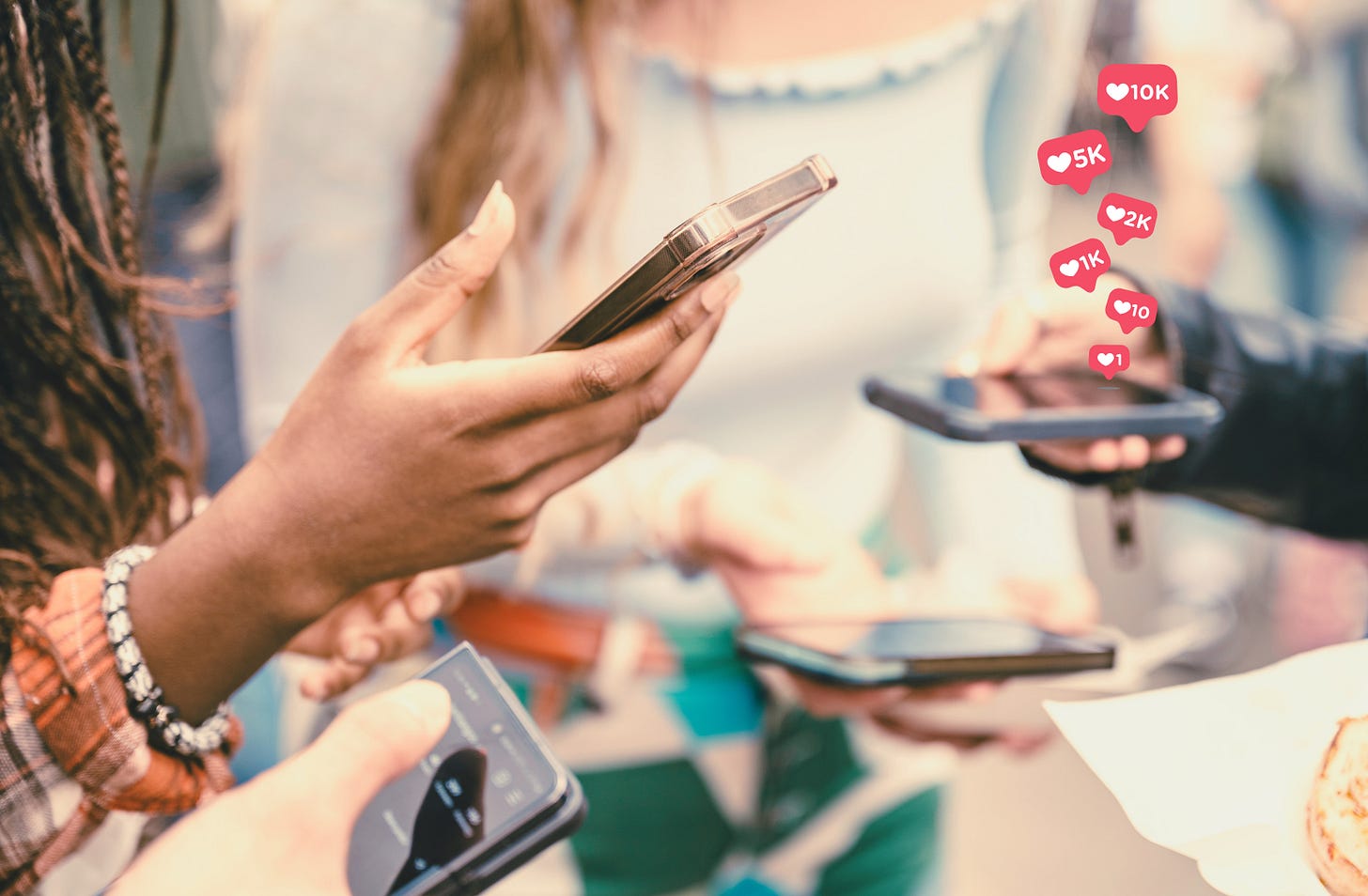I Deleted Instagram—Here’s What Happened When I Finally Escaped the Doomscrolling Trap
After a decade of scrolling, posting, and chasing the algorithm, I pulled the plug. Read about the decision to prioritise my mental health in this digital era.
Do you ever close Instagram and feel truly great? If you do, you’re one of the lucky few. For most of us, the post-scroll sensation is a cocktail of anxiety, comparison, and vague dissatisfaction. Studies confirm what we already suspect: social media is making Millennials and Gen Z more anxious, more depressed, and less present. And yet, quitting feels nearly impossible.
Why?
Social media thrives on outrage and addiction, pushing content designed to keep us engaged, enraged, and endlessly scrolling. And yet, as someone who carefully curates what I eat, who carves out time to meditate and move my body, why was I willingly consuming something I knew was toxic? An app whose CEO actively chooses profit over regulation, engagement over ethics?
I decided to take my power back. Deleting Instagram was my form of protest.
As a business owner, Instagram felt less like a tool and more like an unpaid, relentless job—feed the algorithm, or disappear. I love creating, but I found myself designing posts and reels not for joy, but to appease a machine that would punish me for inconsistency. And the return? After four years of running my business, The Nomad Salon, Instagram brought me exactly one client. One. (Fine, a few more—but they were already friends or acquaintances. So, one client who found me organically.) For all the hours invested, it simply wasn’t worth it.
I know what some of you are thinking: “You just weren’t using Instagram right.” Maybe. But that’s the point—the algorithm is a constantly shifting, insatiable beast, and we’ve all unconsciously agreed to its terms. Even if you’re strategic, it’s a game that demands you play by its rules, forever chasing engagement metrics that ultimately benefit the platform more than the user. And even if you win, what do you really gain?
Instagram is built for speed, not depth. It’s a place where you are only as relevant as your last post. It’s exhausting. It’s also addictive.
I thought I had a healthy relationship with Instagram—until I didn’t. In the initial years of using the app I wasn’t doomscrolling for hours, but the pandemic changed things. Suddenly, staying informed felt like a civic duty. I told myself that absorbing a nonstop stream of news was responsible. But I wasn’t processing information—I was reacting to it, drowning in an endless cycle of anger, sadness, and helplessness.
It wasn’t just the news. I’d pick up my phone to check the weather, only to find myself, minutes later, deep in an Instagram vortex, wondering why I had even unlocked my screen in the first place. That muscle memory, that unconscious compulsion—it unsettled me. I was a lab rat in Silicon Valley’s grand experiment, trained to seek dopamine hits in the form of likes, comments, and infinite scroll.
The real wake-up call? My husband’s casual observations.
He’d joke about my shifting moods, the way my morning tea ritual was often interrupted by a headline-induced rage spiral. One minute, calm. The next, thrown into existential despair over something a stranger—or worse, a bot—had posted. My emotional stability had become collateral damage in the social media war for attention.
So, I quit. First, my personal account. Then, I deleted the app. My business account (@thenomadsalon) still technically exists, a ghost of past content, but I have no plans to return.
Was I afraid leaving Instagram would hurt my business? Absolutely. But after witnessing the world unravel in real time, after watching billionaires manipulate public discourse like puppeteers, it became clear: unplugging was an ethical decision as much as a personal one.
And let’s be real—has there been a single break in the madness since 2020? A single moment to breathe before the next catastrophe floods the feed? The world is on fire, literally and figuratively, and no amount of posting, liking, or commenting is going to put it out. What will? Real action. Voting. Investing in causes that align with our values. Being present in our actual communities.
Since quitting, I feel like I’ve reclaimed something immeasurable—time. Time to read, to write, to sip tea without the compulsive need to document it. A return to the analog, to the real. And it turns out, if someone needs me, they’ll find me. If I need inspiration, I know where to look: books, nature, unscripted conversations.
So, was deleting Instagram a radical act of self-sabotage or the ultimate luxury?
I choose to believe it’s the latter.
If you’re intrigued, I highly recommend listening to “How Your Phone Is Aging Your Brain” from the Heal Thy Self podcast with Dr. G. It’s a fascinating deep dive into the cognitive toll of social media.
And as for my next move? A flip phone is starting to sound like the dream. No apps. No algorithm. Just a phone that functions as a phone. Imagine that.
What do you think? Could you ever step away, or is social media too ingrained in daily life? I’d love to hear your thoughts—just, you know, not in an Instagram comment section.




